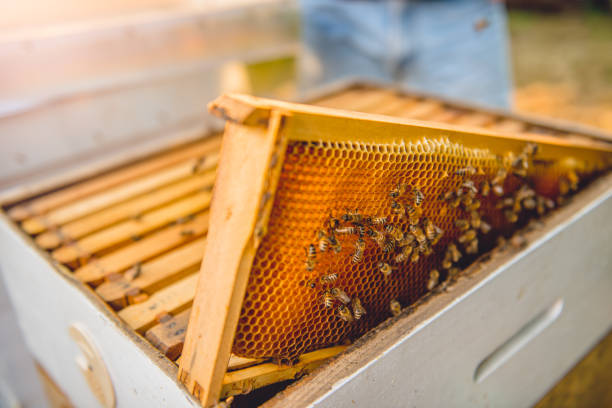Honeybees natural survival instinct can causes them to swarm - most commonly because their current colony has outgrown their hive. By splitting into multiple colonies they increase their chances of survival.
Hives Manawatu offers a free swarm collection service.
If you have a swarm that has settled on your property, give us a call or text, and we'll arrange for someone to come out and collect them. Please don't disturb the swarm or try to make it move on. Hosing it down or spraying it with flyspray only hurts or kills the bees, and they still won't move on until they're ready.
Details we need are:
- Address where the swarm is
- Location on property
- Approximate height off the ground
- Size of cluster
- Contact details if we need to call
When bees swarm, approximately half of the colony will leave the hive with the queen and fly into the air. This stage of swarming can be quite disconcerting as they are flying about as a large cloud of bees, and it can sound angry and aggressive simply due to the buzzing of thousands of bees. This is not the case, they generally won't attack you if you're nearby. Shortly after leaving the hive they will settle somewhere while they wait for their scout bees to find a suitable location for the new colony to set up. While they are waiting, they are clustered together somewhere such as a tree branch, fence post etc. This is the stage at which a beekeeper can come and collect them fairly easily.
They will stay in the cluster usually somewhere between a few hours and a few days, though it can be as little as 10 minutes. While clustered they are not defensive as before they left their hive they fill up on honey making which makes them more docile; also they have no hive to protect. There will only be a handful of bees airborne around the cluster. The cluster may be small, only a few handfuls, or large, the diameter of a rugby ball and two or three times as long.
Once the scout bees have found a suitable location the cluster will leave, become airborne and fly to their new home. Once they have moved into a new location they can be quite difficult to remove and may have to be exterminated. Colonies can set up in virtually anything that has the right characteristics - a reasonable size, weather tight, defendable entrances etc - this might be a wall or roof cavity, coal box, chimney cavity, vehicle engine bay etc.

